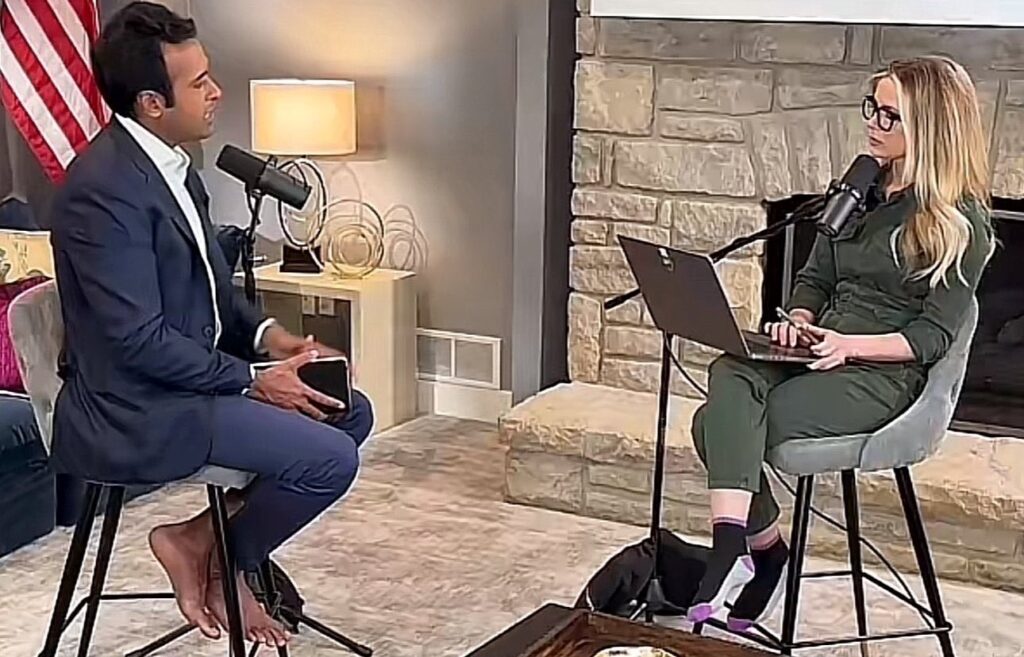Vivek Ramaswamy’s Barefoot Interview Sparks Cultural Debate

Vivek Ramaswamy’s Barefoot Interview Sparks Cultural Debate
Washington: Entrepreneur and former presidential candidate Vivek Ramaswamy has become the focus of an online debate after a video of him giving a barefoot interview at home resurfaced. The clip, originally from a live stream last year, has drawn mixed reactions, with critics calling his actions “uncivilized” and “anti-American.”
Commentator Ian Miles Cheong dismissed the criticism, calling it “the dumbest argument” he had heard. He pointed out that going barefoot at home is a normal practice and suggested that critics may have been influenced by television portrayals of Americans wearing shoes indoors.
Despite Cheong’s defense, social media users continued to criticize Ramaswamy. One comment read, “Vivek will never be governor of Ohio. This is unacceptable for America,” while another suggested he should at least wear socks during a public interview.
However, many defended Ramaswamy, highlighting that removing shoes indoors is a common cultural practice in South and East Asia. “Nearly all Indians go barefoot in their own homes. There’s nothing wrong with it—just a cultural thing,” one user wrote. Another pointed out that in Indian tradition, taking off shoes before entering a home is a sign of respect and hygiene.
Political commentator Kim Iversen weighed in, saying, “I understand this is a cultural thing, but you non-Asians wearing shoes in your homes need a culture shift.” She also mentioned that in her own home, shoes and even socks are not allowed for safety reasons.
Addressing the controversy, Ramaswamy responded, “This is America, folks. I let the dogs out in my house when I feel like it.” His statement has been praised by supporters, who see it as a confident and unapologetic stance.
While some conservatives have criticized Ramaswamy over his background, others have commended his composure in handling past controversies. One supporter noted, “Vivek showed extreme class when Ann Coulter made racially charged remarks against him. He remained composed and continued the conversation without falling into a victim mentality.”












